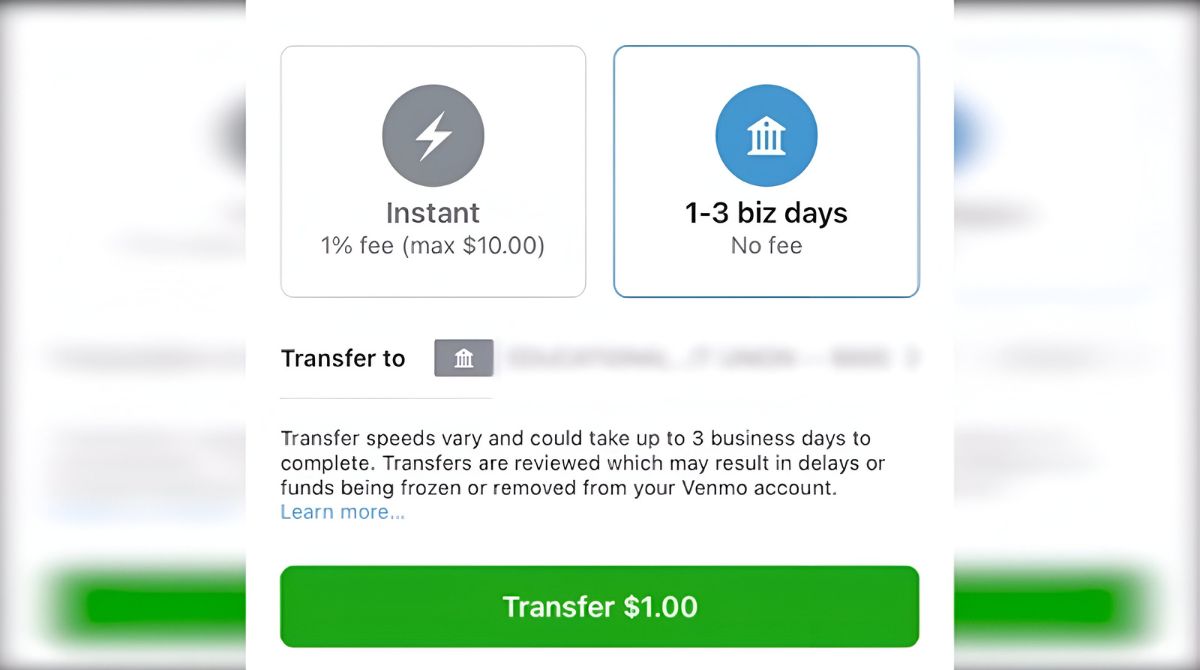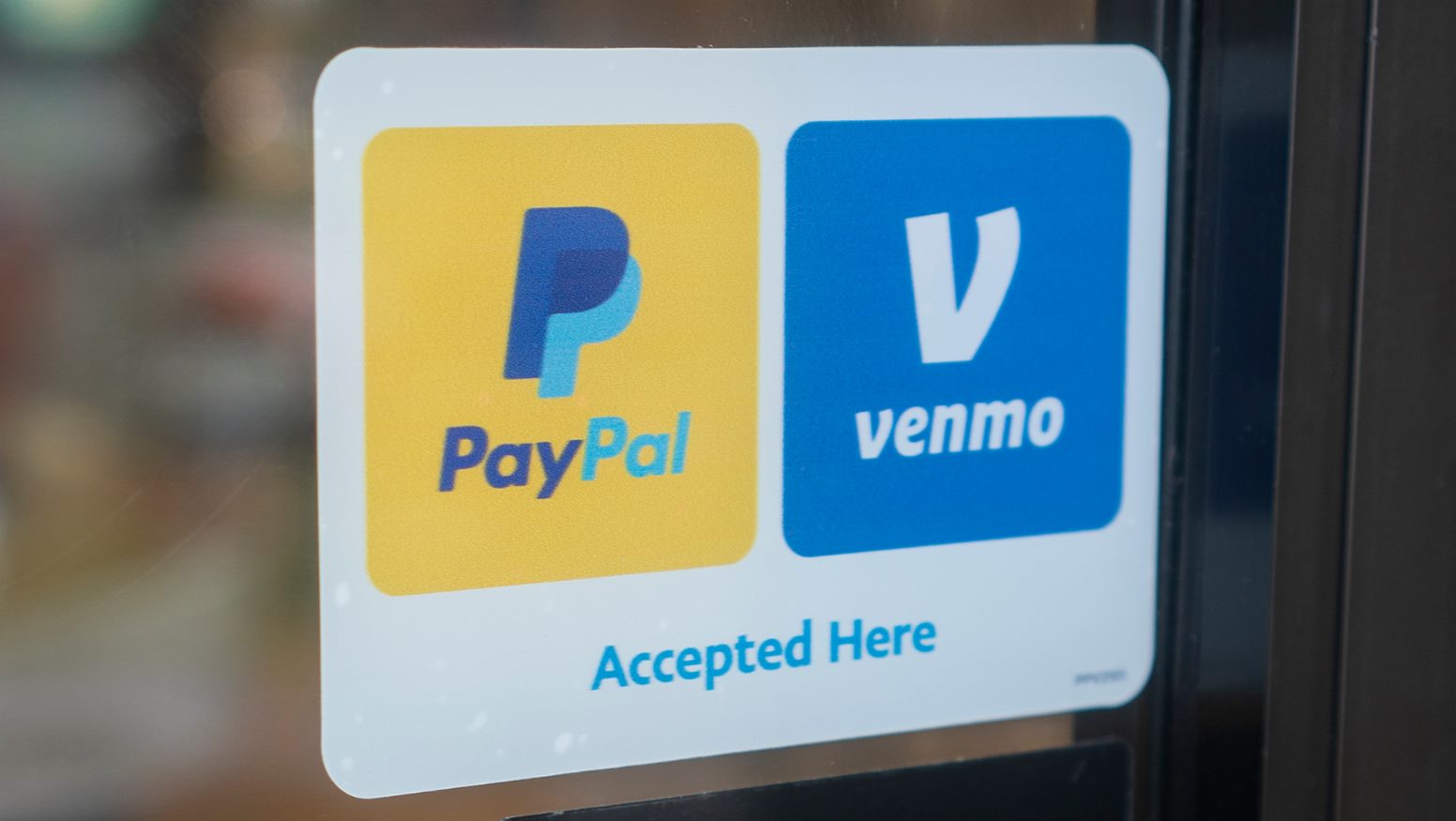Overview of Venmo Business
Venmo Business is a payment processing platform designed for small businesses and freelancers to easily receive and manage payments from customers. It’s a convenient, mobile-friendly solution that enables businesses to efficiently handle transactions and streamline their payment processes.
With Venmo Business, businesses can create a professional profile, customize payment options, and provide a seamless payment experience to their customers. The platform allows businesses to accept various types of payments, including peer-to-peer transactions, in-app purchases, and online payments, making it versatile and adaptable to different business models.
One of the key advantages of Venmo Business is its user-friendly interface, which simplifies payment management tasks such as invoicing, tracking transactions, and accessing payment history. Businesses can easily generate invoices, send payment reminders, and categorize transactions for better organization and financial record-keeping.
Venmo Business also offers integration with other business tools and platforms, allowing seamless synchronization of payment data, customer information, and sales analytics. This integration helps businesses gain valuable insights into their operations and customer behavior, empowering them to make data-driven decisions and optimize their business processes.
Furthermore, Venmo Business provides businesses with the option to create and offer subscription services or recurring payments to their customers. This feature is particularly useful for businesses that offer ongoing services or subscriptions, enabling them to automate payment collection and ensure a steady revenue stream.
Overall, Venmo Business is an efficient and cost-effective payment processing solution for small businesses and freelancers. Its user-friendly interface, versatility, and integration options make it a convenient tool for managing payments, tracking transactions, and analyzing business data. Whether you’re a freelancer, a small business owner, or a budding entrepreneur, Venmo Business provides the tools and features necessary to streamline your payment operations and enhance your business’s financial performance.
Transaction Fees
When using Venmo Business, it is important to be aware of the transaction fees associated with the platform. Transaction fees are typically charged as a percentage of the transaction amount, and they can vary depending on the nature of the payment and the location of the business.
For peer-to-peer payments, where funds are transferred between individuals, Venmo Business charges a transaction fee of 2.9% plus $0.30 per transaction. This fee applies to both incoming and outgoing payments and is deducted automatically from the total amount transferred.
When it comes to in-app purchases made through Venmo Business, the transaction fee remains the same at 2.9% plus $0.30 per transaction. This fee applies to the total purchase amount, allowing businesses to receive payments directly within their app while incurring a reasonable fee for the convenience provided.
For online payments, where customers make purchases through a website or online store, the transaction fee is also 2.9% plus $0.30 per transaction. This fee ensures that businesses can securely accept payments online and covers the necessary processing fees to facilitate the transaction.
It is important to note that Venmo Business also supports international transactions, allowing businesses to receive payments from customers located outside of the United States. For international transactions, an additional fee of 1% is charged on top of the standard transaction fee mentioned earlier. This fee covers the additional costs associated with processing international payments and currency conversion.
Overall, Venmo Business transaction fees are competitive and transparent, providing businesses with a cost-effective solution for payment processing. The fees charged ensure that businesses can efficiently manage their payments while receiving the necessary support and security offered by the platform.
Monthly Fees
When considering Venmo Business as a payment processing platform, it is important to understand the monthly fees associated with the service. Unlike some other payment processors, Venmo Business does not charge a flat monthly fee for using its platform. This can be beneficial for businesses that have variable transaction volumes or operate on a seasonal basis.
Instead of a fixed monthly fee, Venmo Business charges transaction fees on a per-transaction basis. This means that businesses only pay fees when they receive payments through the platform. This fee structure ensures that businesses are not charged for idle periods or when they are not actively processing payments.
By eliminating monthly fees, Venmo Business offers businesses flexibility and cost-effectiveness, especially for those just starting or operating on a tight budget. Businesses have the freedom to scale their operations and pay fees only when they receive payments, allowing them to control their expenses and allocate resources more efficiently.
It is important to note that while Venmo Business does not charge a monthly fee, there may be additional fees for certain services or features. For example, businesses may incur charges for using advanced reporting tools, accessing customer support beyond the basic level, or integrating Venmo Business with third-party applications.
Businesses should review the terms and conditions of Venmo Business carefully to understand any potential additional fees that may apply. This will help them make informed decisions and budget accordingly.
Overall, the absence of a monthly fee makes Venmo Business an attractive option for small businesses and freelancers. The pay-as-you-go fee structure allows businesses to only pay when they receive payments, providing flexibility and cost-effectiveness. It is advisable for businesses to evaluate their transaction volumes and needs to determine if this fee structure aligns with their financial goals and operational requirements.
Peer-to-Peer Payments
Venmo Business offers businesses the ability to accept and process peer-to-peer payments, allowing individuals to easily send money to the business for goods or services provided. This feature is particularly beneficial for businesses that have a strong customer base of individuals who prefer using peer-to-peer payment platforms.
With Venmo Business, businesses can create a professional profile that customers can search for and engage with. This profile includes essential business details such as the business name, logo, description, and contact information. It provides a sense of credibility and trust to customers, making it easier for them to initiate transactions with the business.
Customers can conveniently send payments to the business by searching for the business profile on the Venmo app. They can simply enter the business name, select the correct profile, and input the desired payment amount. This streamlined process ensures a seamless and hassle-free experience for both the customer and the business receiving the payment.
Another notable feature of peer-to-peer payments on Venmo Business is the ability to send payment requests. If a customer owes the business money, the business can send a payment request directly to the customer using the Venmo app. This eliminates the need for manual tracking and follow-up, ensuring that businesses are promptly paid for their products or services.
Additionally, Venmo Business provides businesses with the option to issue refunds for peer-to-peer payments. If a customer requests a refund or if a payment needs to be reversed for any reason, businesses can easily process the refund within the Venmo Business platform. This simplifies the refund process and helps maintain positive customer relationships.
Overall, peer-to-peer payments on Venmo Business provide businesses with a convenient and secure way to receive payments from individual customers. With features such as professional profiles, payment requests, and refund capabilities, businesses can enhance their payment processes and provide an exceptional payment experience to their customers.
In-App Purchases
Venmo Business offers businesses the ability to accept payments for in-app purchases, making it a convenient solution for businesses that have mobile applications. This feature allows businesses to seamlessly integrate payment processing within their app, providing a smooth and efficient checkout experience for their customers.
With Venmo Business, businesses can customize their in-app purchase options to align with their product offerings and pricing structure. This customization feature allows businesses to display their products or services with clear descriptions and prices, making it easier for customers to make purchase decisions.
When customers make an in-app purchase, the payment process is streamlined and secure. Venmo Business securely processes the payment, ensuring that customer information is encrypted and protected. This gives customers peace of mind and helps build trust in the business’s brand and integrity.
One of the key advantages of accepting in-app purchases through Venmo Business is the ability to access real-time sales data and analytics. Businesses can obtain valuable insights into their sales performance, customer behavior, and revenue trends. This information allows businesses to make data-driven decisions, optimize their product offerings, and identify areas for improvement.
In addition to the convenience and analytics provided, Venmo Business also offers businesses the option to incorporate special promotions or discounts within their in-app purchase flow. This feature can be used to attract new customers, encourage repeat purchases, or reward loyal customers. It provides businesses with a way to enhance customer satisfaction and engagement.
Furthermore, businesses can easily manage and track their in-app purchases within the Venmo Business platform. They can view detailed transaction information, monitor inventory levels, and reconcile payments with order fulfillment. This centralized management system helps businesses stay organized and efficient, reducing the need for manual tracking and reconciliation tasks.
Overall, accepting in-app purchases through Venmo Business enhances the overall customer experience and provides businesses with impactful benefits. From customization and security to real-time analytics and promotional capabilities, businesses have the tools and features necessary to optimize their in-app payment processes and drive their business’s success.
Online Payments
Venmo Business provides businesses with the ability to accept online payments, making it a versatile solution for businesses that operate through websites or online stores. This feature allows businesses to provide a convenient and secure payment experience to their customers when making purchases online.
With Venmo Business, businesses can easily integrate the payment processing functionality into their existing website or online store. This integration can be done through various methods, including plugins, APIs, or custom development. The flexible integration options ensure a seamless payment experience for customers, resulting in higher customer satisfaction and increased conversion rates.
When customers make online payments through Venmo Business, their payment information is securely processed and encrypted. This provides an added layer of security and helps build trust between the business and the customer. By offering a secure payment method, businesses can confidently accept online payments and mitigate the risk of credit card fraud or data breaches.
Another notable feature of online payments through Venmo Business is the ability to customize the checkout process. Businesses can design a checkout page that aligns with their brand identity, offering a cohesive and professional user experience. Customization options may include branding elements, payment options, and additional fields to gather customer information.
In addition to the streamlined payment process, businesses can easily track and manage online payments within the Venmo Business platform. They can view transaction details, generate reports, and reconcile payments with orders or invoices. This centralized management system simplifies financial record-keeping and enhances overall operational efficiency.
Furthermore, Venmo Business offers a responsive and mobile-friendly checkout experience for customers. This is crucial in today’s digital landscape, as more and more consumers are using mobile devices to make online purchases. Businesses can ensure that their customers can easily complete transactions on any device, improving customer satisfaction and reducing cart abandonment.
Overall, the online payment feature of Venmo Business empowers businesses to provide a smooth, secure, and tailored checkout experience to their customers. By integrating Venmo Business into their online platforms, businesses can optimize their online payment processes, enhance customer trust, and drive their online sales.
International Transactions
Venmo Business supports international transactions, allowing businesses to receive payments from customers located outside of the United States. This feature expands the reach of businesses and enables them to engage with a global customer base, opening up new opportunities for growth and expansion.
When processing international transactions through Venmo Business, businesses should be aware that there may be additional fees and considerations. Venmo Business charges an additional fee of 1% on top of the standard transaction fee for international payments. This fee covers the costs associated with processing international transactions and currency conversion.
It is also important to note that the availability and acceptance of Venmo Business may vary depending on the country where the customer is located. Before conducting international transactions, businesses should verify whether their customers can access and use Venmo Business in their respective countries.
When it comes to currency conversion, Venmo Business provides businesses with the convenience of automatically converting international transactions into the currency of their choice. This reduces the complexities and challenges associated with managing multiple currencies and simplifies financial reconciliation.
However, businesses should be aware that currency conversion fees may apply when processing international transactions. These fees are typically charged as a percentage of the transaction amount or a fixed fee, depending on the currency conversion provider and the specific terms of the transaction.
Despite these considerations, accepting international transactions through Venmo Business can be highly advantageous for businesses that operate on a global scale. It allows businesses to tap into new markets, engage with a diverse customer base, and expand their revenue streams beyond domestic borders.
By providing a secure and streamlined payment experience for international customers, businesses can build trust and establish themselves as a reputable global brand. With the ability to accept international transactions, businesses can unlock new growth opportunities, increase their customer base, and drive their business’s success on a global level.
Currency Conversion Fees
When conducting international transactions through Venmo Business, businesses may encounter currency conversion fees. These fees are incurred when converting the customer’s currency into the business’s preferred currency, allowing for seamless payment processing and financial reconciliation.
Venmo Business provides businesses with the convenience of automatic currency conversion, which eliminates the need for manual calculations and conversions. This ensures that businesses receive the correct amount in their desired currency, simplifying financial management and reducing administrative overhead.
The exact currency conversion fees may vary depending on the currency conversion provider and the specific terms of the transaction. Typically, currency conversion fees are charged as a percentage of the transaction amount or as a fixed fee, depending on the provider’s fee structure.
It is advisable for businesses to review and understand the currency conversion fees imposed by their chosen currency conversion provider. By doing so, businesses can accurately estimate the costs associated with international transactions and factor them into their pricing strategy or financial forecasting.
Businesses should also consider the currency exchange rates used for currency conversion. Exchange rates fluctuate constantly, and the applicable rate at the time of the transaction determines the final amount received in the business’s preferred currency. It’s important to stay updated on exchange rate fluctuations to ensure accurate financial planning and forecasting.
Despite currency conversion fees, businesses should recognize the immense value of accepting international transactions. By accommodating customers from different countries and allowing them to pay in their local currency, businesses can enhance the customer experience, build trust, and ultimately grow their global customer base.
When considering the costs of currency conversion fees, businesses should weigh them against the potential benefits of expanding their reach and tapping into new markets. The ability to engage with international customers and increase revenue streams can outweigh the costs associated with currency conversion.
Businesses should carefully evaluate their international transaction volume, the potential impact on revenue, and the overall business objectives before deciding to incur currency conversion fees. With the right approach and planning, businesses can leverage the power of international transactions while managing and minimizing the impact of currency conversion fees on their bottom line.
Additional Features and Costs
Venmo Business offers a range of additional features that can enhance the payment processing experience for businesses. While some features are included in the standard service, others may come with additional costs. It’s important for businesses to understand these features and the associated costs before deciding to use them.
One of the additional features offered by Venmo Business is advanced reporting and analytics. Businesses can access detailed reports and analytics to gain insights into their sales performance, customer behavior, and transaction trends. This feature allows businesses to make data-driven decisions and optimize their operations for better results.
While basic reporting features are typically included in the standard service, advanced reporting tools may require an additional fee. Businesses should review the pricing details to determine if investing in advanced reporting capabilities aligns with their financial goals and business needs.
Venmo Business also provides businesses with the option to integrate with other tools and platforms. This integration allows businesses to synchronize payment data, customer information, and sales analytics with third-party applications, such as accounting software or customer relationship management (CRM) systems.
The availability of integrations may vary, and some integrations may come with additional costs. Businesses should explore the available integrations and assess their value in streamlining their operations and enhancing their overall efficiency.
Customer support is another important consideration when using Venmo Business. While basic customer support is typically included in the standard service, businesses may have the option to access additional levels of customer support at an extra cost. Enhanced customer support can provide businesses with priority assistance, faster response times, and access to dedicated account managers.
Furthermore, businesses should be mindful of potential fees for certain actions or services. For instance, if a business needs to issue a refund, a fee may be applied on top of the standard transaction fee. Businesses should review the fee structure for such actions to avoid any surprises or unexpected costs.
It’s crucial for businesses to thoroughly review the terms and conditions, as well as the pricing details, of Venmo Business to fully understand the additional features and associated costs. By doing so, businesses can make informed decisions and select the options that align with their budget, operational needs, and growth objectives.
Comparing Venmo Business with Other Payment Processing Services
When considering a payment processing service for their business, it’s essential for business owners to compare different options available in the market. Here, we will compare Venmo Business with other popular payment processing services to understand their key features, benefits, and any potential drawbacks.
PayPal, for example, is a widely recognized payment processing service that offers similar functionalities to Venmo Business. Both platforms allow businesses to accept payments through various channels, including peer-to-peer transactions, online purchases, and in-app payments.
One key distinction between Venmo Business and PayPal is the target audience. While Venmo Business caters more to small businesses and freelancers, PayPal caters to a broader range of businesses, including small, medium, and large enterprises. PayPal also offers a wider range of features, such as invoicing, subscription management, and more robust integrations.
Square is another popular payment processing service that competes with Venmo Business. Square provides businesses with a comprehensive suite of tools, including payment processing, point-of-sale solutions, inventory management, and analytics. This makes it a suitable choice for businesses that require an all-in-one solution to manage their operations.
When comparing Venmo Business with Square, it’s important to consider the specific needs of the business. Venmo Business may be more suitable for businesses that prioritize mobile-friendly transactions and peer-to-peer payments, while Square may be a better fit for businesses that require robust inventory management and comprehensive business analytics.
Stripe, on the other hand, focuses on providing a developer-friendly payment processing solution. It offers powerful APIs and customizable tools that enable businesses to integrate payment processing seamlessly into their websites or applications. Stripe is known for its flexibility and scalability, making it a popular choice for businesses with complex payment requirements or high transaction volumes.
When comparing Venmo Business with Stripe, businesses should consider their technical capabilities and development needs. If a business requires extensive customization options and advanced development features, Stripe might be the more suitable choice.
It’s important for businesses to evaluate their specific requirements, such as transaction volume, desired features, and target audience, when comparing different payment processing services. Factors such as transaction fees, integration options, customer support, and the overall user experience should also be taken into consideration.
By carefully comparing the features and benefits of different payment processing services, businesses can make an informed decision that aligns with their unique needs, budget, and growth objectives.
Tips to Minimize Fees on Venmo Business
When using Venmo Business as a payment processing platform, businesses can take certain measures to minimize fees and optimize their overall cost structure. By implementing these tips, businesses can effectively manage their expenses and maximize their profitability:
1. Set Competitive Pricing: Carefully evaluate pricing strategies to ensure that the business is charging fair and competitive prices for products or services. Higher transaction volumes at reasonable prices can help offset the impact of transaction fees.
2. Encourage Bank Transfers: Encourage customers to link their bank accounts to Venmo Business rather than using credit or debit cards for transactions. Bank transfers incur lower fees compared to card transactions, helping businesses save on processing costs.
3. Consider Volume Discount: If the business processes a significant number of transactions per month, consider reaching out to Venmo Business to inquire about volume discounts or special pricing arrangements based on transaction volume.
4. Review Fee Structures: Regularly review the fees charged by Venmo Business and keep track of any updates or changes in the fee structure. Stay informed about potential updates to ensure that the business is aware of the costs associated with its payment processing activities.
5. Optimize Fraud Prevention Measures: Implement robust fraud prevention measures to minimize chargebacks and fraudulent transactions. By preventing fraudulent activities, businesses can avoid additional fees and potential financial losses.
6. Regularly Monitor and Reconcile Transactions: Stay on top of transaction activity by monitoring and reconciling payments regularly. This ensures accurate reporting, reduces the risk of errors, and helps identify any discrepancies or potential issues promptly.
7. Utilize Reporting and Analytics: Take advantage of the reporting and analytics tools provided by Venmo Business. Analyzing transaction and customer data can provide valuable insights into customer behaviors, trends, and opportunities for improvement.
8. Explore Integration Opportunities: Explore integrations with other business tools or software to streamline operations and reduce manual tasks. Integration can optimize the efficiency of payment processing activities, potentially reducing costs associated with time-consuming processes.
9. Evaluate and Optimize Payment Flows: Continuously assess the payment flows and checkout processes. Simplify the payment process to minimize the chances of cart abandonment and ensure a smooth customer experience, reducing the need for additional customer support and potential fees.
10. Stay Informed: Stay up to date with industry trends, changes in payment regulations, and advancements in technology. Staying informed helps businesses adapt quickly to any changes and make proactive adjustments to optimize their payment processing activities.
By following these tips, businesses can minimize fees on Venmo Business and optimize their payment processing activities, ultimately improving their profitability and ensuring a smooth financial operation.
Conclusion
Venmo Business is a versatile payment processing platform that offers a range of features and benefits for small businesses and freelancers. Its user-friendly interface, flexibility, and integration options make it an attractive choice for businesses looking to streamline their payment processes and enhance their financial operations.
From peer-to-peer payments to in-app purchases and online transactions, Venmo Business enables businesses to accept payments through various channels, providing convenience to their customers and expanding revenue opportunities. The ability to process international transactions and handle currency conversion further extends the reach of businesses in the global marketplace.
While transaction fees and potential additional costs should be considered, Venmo Business provides competitive pricing and transparent fee structures. By carefully managing transaction volumes, offering competitive pricing, and exploring opportunities to minimize expenses, businesses can effectively manage their costs and maximize profitability.
Furthermore, the availability of additional features such as advanced reporting, integrations, and enhanced customer support allows businesses to tailor their payment processing activities to their specific needs and preferences. These features provide businesses with valuable insights, efficiency gains, and a personalized customer experience.
It’s important for businesses to carefully evaluate their requirements and compare Venmo Business with other payment processing services to ensure they select the best fit for their specific needs. Considering factors such as transaction volumes, desired features, and target audience can help businesses make a well-informed decision.
In conclusion, Venmo Business offers small businesses and freelancers a convenient, mobile-friendly, and cost-effective solution for payment processing. By leveraging its features, minimizing fees, and optimizing their overall payment operations, businesses can enhance their financial performance, satisfy customers, and drive their business’s success.

























